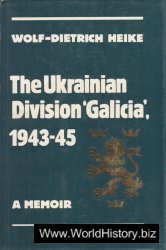The earliest modern studies of the novel were interested in the genesis of the genre and discussed the role of rhetorical theory and practice from this perspective. K. Barwick, ‘Die Gliederung der Narratio in der Rhetorischen Theorie und ihre Bedeu-tung fiir die Geschichte des antiken Romans’, Hermes63 (1928), pp. 261-287, took issue with the suggestion of E. Rohde, Der griechische Roman und seine VorlaUfer (Leipzig: 1914), that the preliminary rhetorical exercise (progymnasma) of narration ( diOgOma) was a nascent form of novel writing. Barwick’s article provides a valuable overview of the treatment of different forms of narration in Greek and Latin rhetorical theory, but the narrow terms in which the question of ‘influence’ was debated limit the interest of the article for students of the novel. After this, studies of the novels tended to focus on their literary qualities, and rhetoric was overshadowed until the work of G. Anderson, Eros Sophistes: The Ancient Novelists at Play (Chico, CA: 1982) and Ancient Fiction (London: 1984), together with B. Reardon, Courants Litteraires Grecs des Ile et Ille Si'cles apr's J.-C. (Paris: 1971), which put the novels back into the context of the Second Sophistic. More recently, the characters’ use of speech in the novels has been reconsidered from a rhetorical perspective by J. Birchall, ‘The Lament as a Rhetorical Feature in the Greek Novel’, Groningen Colloquia on the Novel 7 (1996), pp. 1-17, R. Hock, ‘The Rhetoric of Romance’, in S. E. Porter (ed.), Handbook of Classical Rhetoric in the Hellenistic Period 330B. C. - A. D.400 (Leiden: 1997), pp. 445-466, and L. Pernot, ‘Chariclee la Sirene’, in M.-F. Baslez et al. (eds.), Le Monde du Roman Grec (Paris: 1992), pp. 43-51. A broader and more flexible conception of‘rhetoric’ has also allowed a reconsideration of the interaction between imperial rhetorical theory and practice and the novel that goes beyond questions of origins and influence. J. Morgan, ‘Make-believe and Make Believe: The Fictionality of the Greek Novels’, in C. Gill and T. Wiseman (eds.), Lies and Fiction in the Ancient World (Exeter: 1993), pp. 175-229, analyses the discussions of types of narration in rhetorical theory within a broader investigation into ancient concepts of fiction. B. Cassin, L’Effet Sophistique (Paris: 1995), highlighted the central importance of fictional creation to the Second Sophistic in a discussion that is of great importance to the novels and their place in their contemporary culture.




 World History
World History









